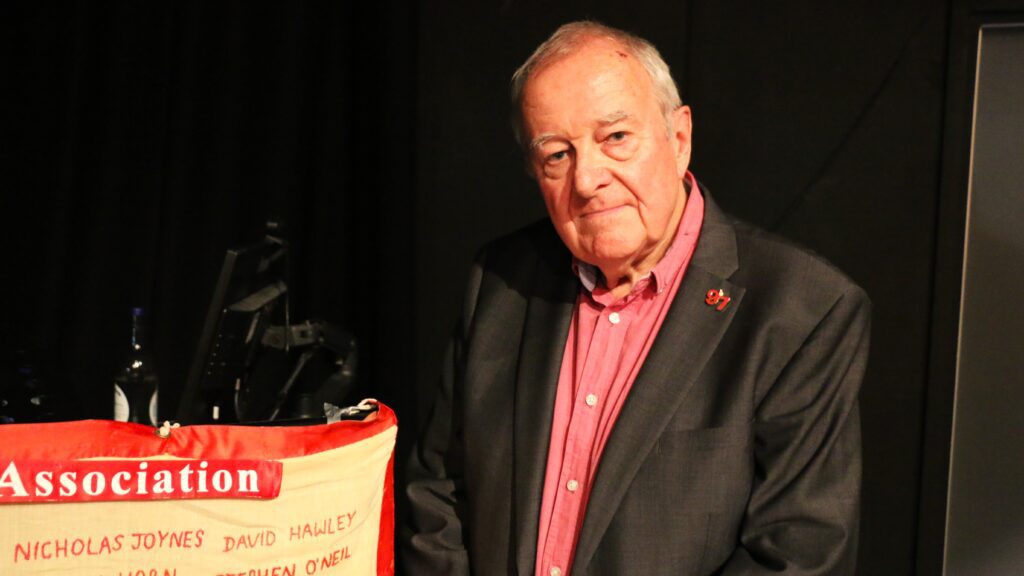On Monday, 4 April 2022, Nadine Dorries tweeted: ‘I have come to the conclusion that government ownership is holding Channel 4 back from competing against streaming giants like Netflix and Amazon […]. I will seek to reinvest the proceeds of the sale into levelling up the creative sector, putting money into independent production and creative skills in priority parts of the country – delivering a creative dividend for all’.
Her words were met with disbelief and disappointment. First of all, it is unrealistic to expect a UK-based national broadcaster to be able to compete with streaming giants that operate in most of the world. Second, the channel isn’t government owned, it is publicly owned: it is not the government that owns it (like the state broadcaster CCTV in China for example), but the public – us. In part, the public response came as a result of her performance in the Digital, Culture, Media and Sports Select Committee in November 2021 where she had to be corrected on how Channel 4 was funded. Surely, someone who makes such a fundamental error and is informed about the fact that Channel 4 does not receive a licence fee or any other public funds would see that privatising it, meaning that selling it off wouldn’t make any sense? For those of us who either study or work in some other way with or on Channel 4, privatising it is nonsensical.
Channel 4 is a commercially funded public service broadcaster. It is financed by the advertising it shows and is bound by a remit of innovation, experimentation and championing of unheard voices among other public purposes. Any money it makes goes back into new commissions. It commissions all its content from independent production companies and is indeed the reason why the UK has such a thriving film and television industry: its model, developed in the 1980s, was part-adopted, through legislation, by the BBC and ITV as well.
For my research, I speak to people who work in the independent sector in the UK, most recently with people in Wales. Welsh drama, you will have noticed, has become quite successful, both nationally and internationally. Hinterland/Y Gwyll (2013-2016) was sold into over 100 territories and attracted more audiences in Germany (4.5 million) than in the UK (where it was shown on S4C and BBC 4). Channel 4 has recently ventured into a similar co-production with S4C and the resulting drama will be shown on Channel 4 later in the year. What this highlights is that Channel 4 is already doing what Nadine Dorries wants to see: it is putting money into priority parts in the UK – in this case Wales, but it is also doing it elsewhere. Indeed, it is Channel 4’s strategy of commissioning everything that has allowed independent production companies to emerge in different parts of the country, including in Manchester where Red Productions is situated quite deliberately, precisely because it wanted to tackle the London-centrism of the broadcasters, as did Colin McKeown and Jimmy McGovern who work from Kirkdale in Liverpool, an area which definitely counts as a priority area in need of ‘levelling up’ or at least some form of financial support. Colin McKeown got his first producing role on Brookside for Channel 4. Red Productions, led by Nicola Shindler, got their break with Queer as Folk, another Channel 4 commission. As a result, the independent producers I know are similarly dismayed as me. Steve Smith from Picture Zero Productions for example tweeted ‘Can’t help but feel the government are making a big mistake. Very disappointing and a big blow to the independent production sector’.
As my research into the Welsh television industry indicates, there are other ways of supporting the creative industries so that they can thrive in all parts of the UK. If perhaps too much of the media are still based in the South-East for England, then Wales has a problem with being too centred in Cardiff. But there, the devolved government, producers and broadcasters, including the BBC and S4C have recognised the need to diversify and have worked with the Centre for the Study of the Media and Culture in Small Nations at the University of South Wales to examine what could be done to diversify production locations. They came up with a list of recommendations which include the need for financial incentives to move productions into different regions, which both tourist boards and the Welsh government try to offer. In addition, new infrastructure is needed, and again this has led to investment in studio spaces in northern Wales, a strategy emulated in Liverpool where it is the local government who is part-financing the Littlewoods Studio Complex development. Finally, the Centre recommended close working relationships with schools, colleges and universities that already provide the skills training that Nadine Dorries believes the sale of Channel 4 would enable.
What the case of Wales makes evident, then, is that the joint effort of government, public service broadcasters which are in public hands, production companies and universities can lead to a thriving and diversified creative industry. Such an evidence-based approach looks sensible and sensical and in addition has the buy-in from all involved, including Welsh audiences who, through watching so much of it on the BBC iPlayer, have helped programmes such as Keeping Faith/Un Bore Mercher (S4C and BBC, 2017-2020) to find mass-audiences way beyond Wales.
April 7, 2022



